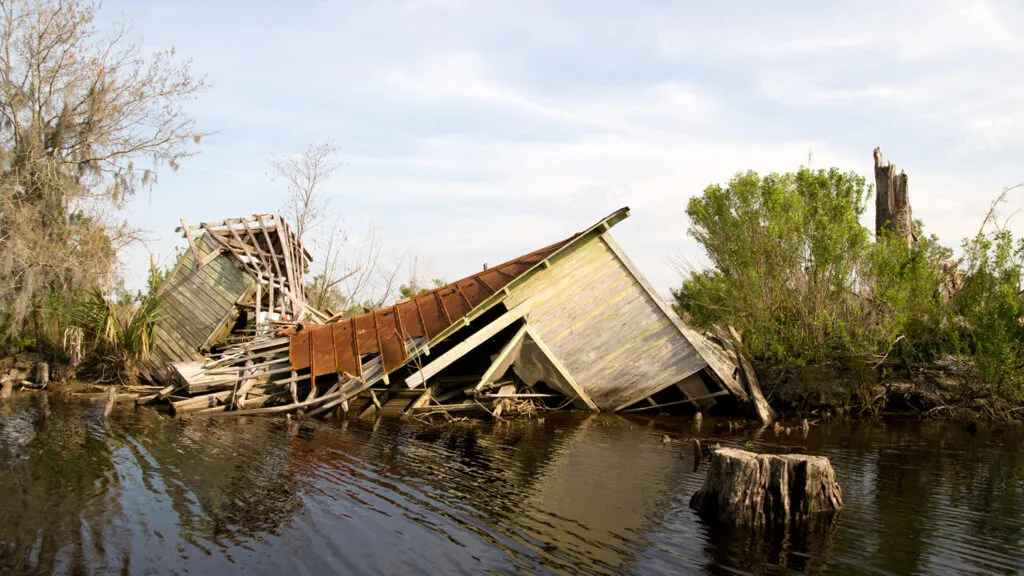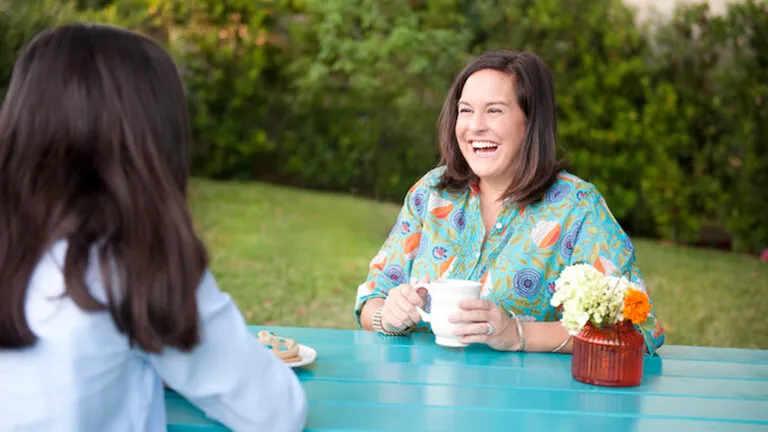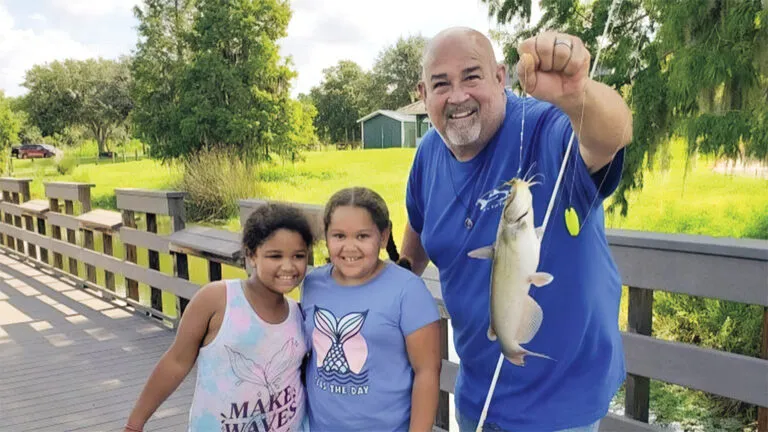I was riding in the backseat of an SUV when I first saw New Orleans. It was a gauzy, muggy morning, three days after Hurricane Katrina hit.
The storm had reduced this most mythical of American cities to a vision of the apocalypse. A photographer and I were driving over the Mississippi River with the words of a police officer at a checkpoint still buzzing in our ears, “If you go there, you’ll probably be killed.”
We pulled to the side of the bridge and looked over the railing. The city, drowned in still, black water, reflected the sky and the rising sun in a lattice of submerged streets. A funnel of smoke from a chemical warehouse fire trailed to the horizon. God has left this place, I thought.
Twenty-four hours earlier I had been sitting at my desk in New York, where I am a newspaper reporter. My phone rang. “Can you be on a plane to Louisiana this afternoon?” my editor asked. “Yes,” I said. Then I put the phone down and stared at the wall. What had I just done?
I went home to pack and say goodbye to my wife, Kate. We had just moved to New York in July from California, and married only two months before that. Our life together was just beginning, mine as a reporter for a New York daily and hers as a priest at an Episcopal church. Was I about to jeopardize our future by plunging into a disaster zone?
Most of my career as a journalist consisted of calling people and cajoling them into giving me tidbits of information. As I sat in my seat on the plane to Baton Rouge I could do nothing more than pray. Let me get through this, Lord. Show me what to do when I get there. Help me get home safe to Kate.
I met the photographer, Matt, at the airport and we loaded our rented SUV with food, water and rubber boots. We took back roads toward the city and used a flashing orange emergency light to get past checkpoints.
When we reached the city we found bodies lying on the sidewalks and, farther on, floating in poisoned water that rose to the roofs. We saw office buildings toppled into chunks of brick and left to burn by a fire department with no running water. And we saw the roaming, desperate survivors clustered along the sides of the highways.
By this time they had gone days with no food or water. Babies were dehydrated. Grandparents sat in broken wheelchairs under a pitiless sun.
Matt and I waded into crowds, and people called out to us, even grabbed us. Several cried with relief that someone had come to tell their story. And, strangely enough, that’s when my fears left me. From a distance the city had looked moribund, desolate. Now, among the people, we saw that the city was alive. Desperate, but alive. What mattered was finding and telling these people’s stories.
I discovered glimmers of dignity and generosity. Picking my way through the urine-soaked, trash-strewn streets in front of the convention center, I met Roynell Joshua, a 72-year-old man who sat with limbs askew in a folding chair on the blistering pavement. He was surrounded by thousands waiting for evacuation buses that had been promised but hadn’t arrived.
Roynell, who had climbed out a window of his flooded home into a rescue boat, needed dialysis. He had missed three treatments since the storm hit. He was weak almost to the point of incapacity. Each leg was the diameter of a baseball bat. When someone tried to move him, his face seized with pain and he cried out, “No! No! No!”
His situation seemed impossible. But then a woman sitting next to him spoke up: “He fell in the street trying to cross over here. I got some guys to help get him. We’ve been on this spot for two days. We sit and talk. It keeps me busy.”
The woman was Darleen Morgan. She had lost her house and her family. She had never met Roynell, but when she saw him slip in a puddle and fall she helped him up. Now she sat beside him, shielding him with an umbrella and holding a bottle of water to his lips.
“She’s doing a good job,” Roynell said.
And there was Brad Mercer, a special-education mediator from a Dallas suburb who drove 500 miles in a 50-foot-long amphibious tourist ferry called the Duck to pull the lost and the frail from drowned New Orleans homes.
I rode with Brad on his boat through a flooded neighborhood near downtown and he told me how watching news images after the storm got him increasingly agitated, until he impulsively cleared out his work calendar for a week and drove the Duck with a friend to New Orleans.
Their boat looked like a giant soap dish with wheels. Rescue workers rejoiced at it because it could plunge into streets too shallow for most boats and too deep for trucks. The afternoon I rode the Duck we motored through streets that bobbed with sodden sofas, police cars and swimming dogs. We reached a school where 25 survivors had been stranded for days.
They loaded in, carrying bags that held all they owned. Cornelius Victor, 52, had sloshed his way to the school with his wife and younger brother, Ronnie, who was so horrified by what he had seen in the hurricane’s aftermath that he couldn’t speak. But Cornelius told me how, each day, he had lathered himself with Vaseline and plunged into the murky waters to take food to elderly neighbors and stranded pets.
For every scene of despair I witnessed in New Orleans, there was a Cornelius Victor. Or a Brad Mercer, who, in his haste to get to New Orleans, drove in shifts with his friend and slept in the metal hull of the Duck. Or a Darleen Morgan. I had witnessed devastation here. But none of my fears were realized.
Instead, I found courage and tears where I expected to find violence. I found ragged attempts to preserve dignity where I expected to find the breakdown of civilization. I found faith where bitterness could have taken hold. And I found that in a fallen world where people so often think only of themselves, the horror of disaster can prompt a selflessness we would otherwise never achieve.
And most important, I found a kind of answer to the question formed by disaster: “Where are you, God, in this?” He was everywhere. I could feel his presence with the suffering of his people.
Perhaps it sounds perverse to say so, but in New Orleans, where all love seemed lost, I found a deeper love that holds the afflicted close enough to offer them redemption. For God is never closer to us than when we are suffering, and hope is never nearer than when we need it most.





